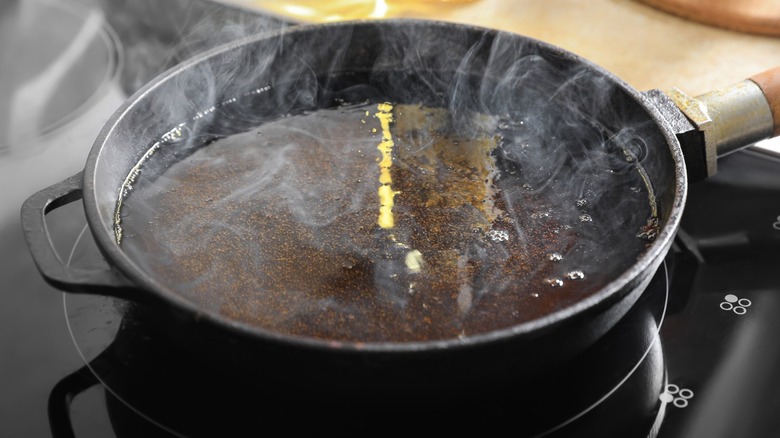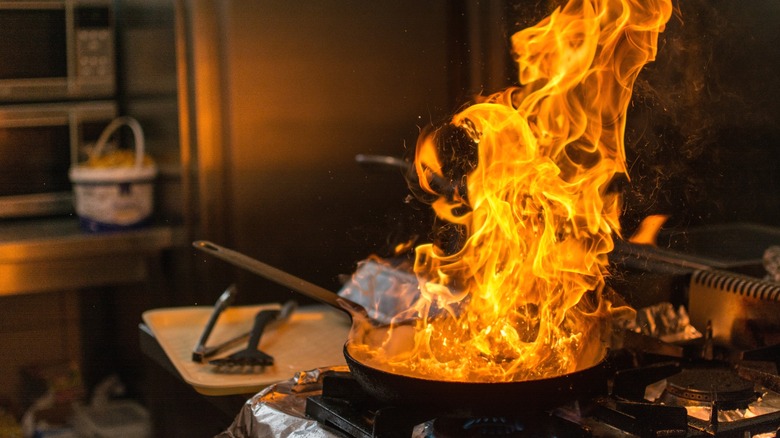If Your Fry Oil Is Way Too Hot, There's An Extremely Easy Fix
There's a reason many of us love deep-frying food so much. Its ability to give foods a crispy, golden exterior and a tender interior is remarkable. However, dealing with hot oil can be tricky, especially when it overheats. If you find yourself facing this common kitchen challenge, don't panic. There's a simple and effective way to handle it. The first thing you need to do when you realize your frying oil is too hot is turn off the heat.
This might seem incredibly basic, but it's the most effective immediate action. By cutting off the heat source, you allow the oil to start cooling down gradually. It's essential to let the oil cool down on its own for a bit without removing it from the burner. This slow cooling process helps stabilize the temperature without causing a drastic drop. Another quick fix to lower the oil temperature after turning off the stove is to add more oil to the pan.
Just make sure the new oil you're adding is at room temperature – pouring cold oil into hot oil too fast can cause splattering, which is dangerous. This method dilutes the overheated oil, bringing down the overall temperature. It's a useful tactic when you need to reduce the heat but don't have time to wait for natural cooling. Also, remember that managing hot oil requires care and attention. Overheated oil not only affects the taste and quality of your food but can also be a fire hazard in the kitchen.
How to handle overheated fry oil that catches fire
In extreme cases, if the frying oil continues heating up for too long, it can eventually spontaneously catch fire – a dangerous situation that needs to be handled correctly. To safely extinguish a grease fire, the first thing to remember is to never ever use water to put it out or throw baking powder or flour onto the fire. Also, do not try moving the pot or pan from the burner, as you may get burned in the process.
Instead, turn off the heat source immediately. Next, put on an oven glove and carefully cover the pan with a metal lid or a cookie sheet to cut off the oxygen supply to the fire. You can also use a fire extinguisher (if available) specifically designed for grease fires, often labeled as Class B. Keep this extinguisher easily accessible in your kitchen for emergencies. Finally, the key to avoiding overheated oil in the first place is careful temperature management.
Heat the oil gradually and keep a close eye on it. Oil will begin to smoke before it catches fire. Using a kitchen thermometer can help you monitor the oil's temperature and prevent it from getting too hot. All in all, understanding the right steps to cool down hot oil and how to safely extinguish oil fires can make your frying experiences both safer and more enjoyable.

